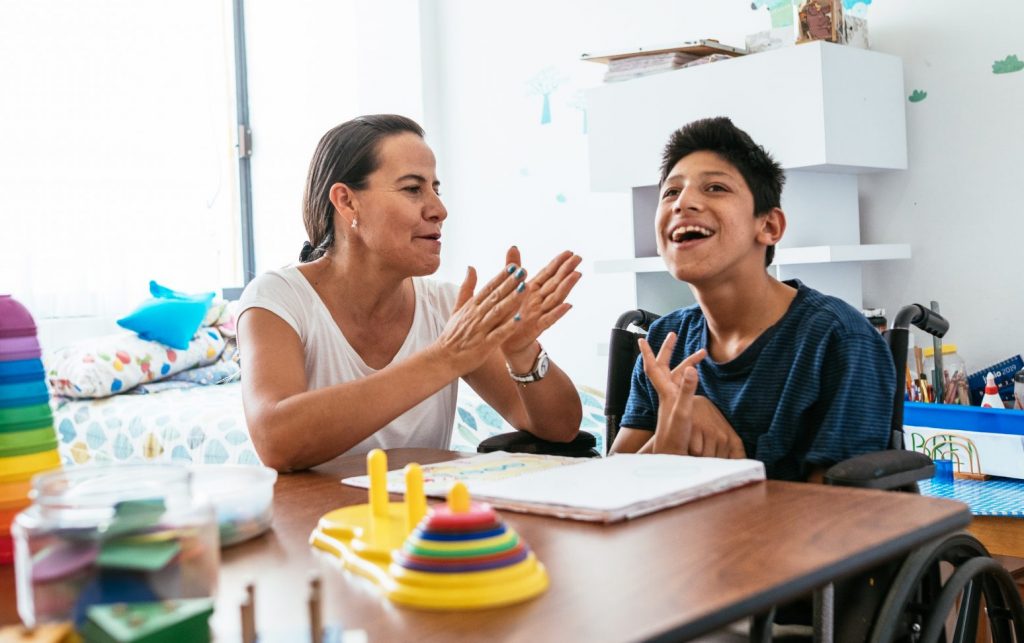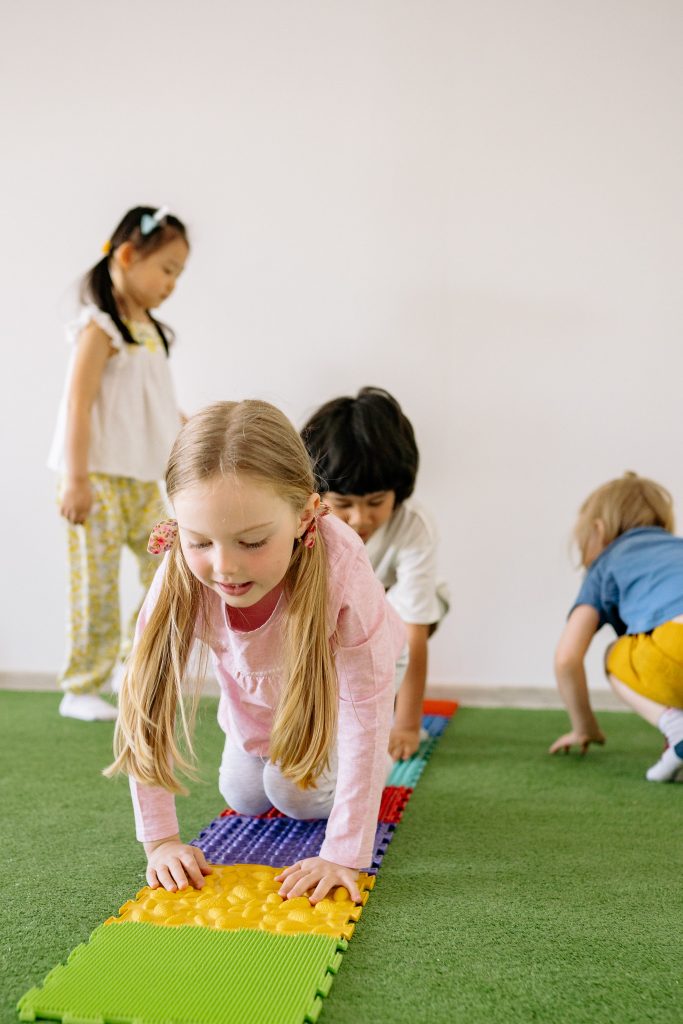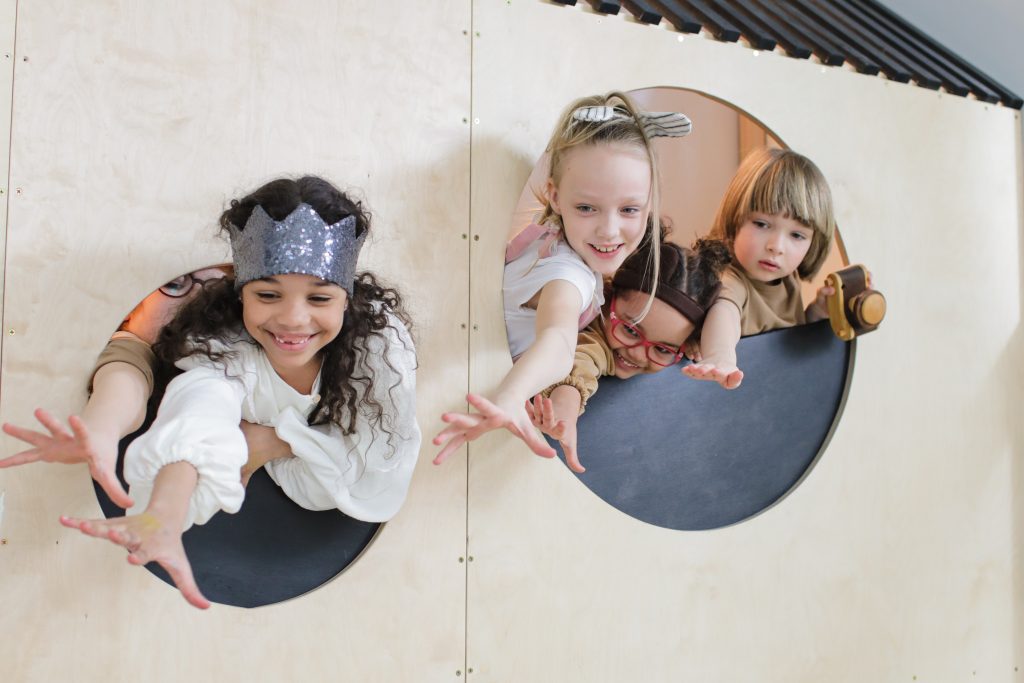
There are only so many hours in a day. And even fewer hours when your child is alert and ready to learn! Currently, local families cannot access effective therapy and group learning simultaneously (though we are working to change that!).
We have noticed a pattern for young children and children with substantial support needs. Does this sound familiar?
Your child goes to school in the morning, makes little progress in their academics, and comes home with a teacher’s note detailing the day’s noncompliant behavior. Then, after a long day at school, your child is too exhausted for the therapies you have scheduled.
If this sounds familiar, consider your other options.
Each family has different priorities. For some, the priority is group learning in a school. For others, the priority is one-on-one, medically-necessary therapy. This is an individual decision with many factors at play.

How to choose
With few exceptions, our experience is that children focus best in the morning. Your child should spend his or her prime learning hours in the most productive environment. Children need many prerequisite skills in order to thrive in a classroom.
Choose group learning if your child has these skills.
Communication
- Makes requests spontaneously
- Protests without aggression
- Easily gains attention from adults
- Responds accurately to simple questions
- Identifies familiar objects and actions
Cooperation
- Tolerates small disappointments
- Transitions between activities
- Follows simple directions
- Plays independently for several minutes
Social
- Remains with a group without wandering away
- Easily attends to faces and people
- Imitates simple actions
Children who have all of these skills may still have plenty of challenges. But, with extra help, they can be successful in a group. Occasional pull-out services or after-school therapy also may be beneficial.
Choose individual therapy to address these challenges.
Communication
- Struggles to gain attention
- Needs prompting to request wants and needs
- Screams, cries, or whines more than speaks
Cooperation
- Displays aggressive behavior
- Displays excessively noncompliant behavior
- Wanders away from a classroom or group
- Protests simple pre-academic tasks
Social
- Avoids when others approach
- Protests sharing or taking turns
- Prefers self-stimulatory behavior to play
Children who have these challenges will not learn effectively without one-on-one instruction. Some schools are able to provide this. But most are not.
As skills develop, families should begin a careful transition from one-on-one to group-based learning. When it is time to transition, pull-out services and individual therapy will remain helpful.

What about social skills?
To be blunt, children who do not communicate or tolerate disappointment are not ready to socialize without close supervision.
Your child’s peers are loud, chaotic, and needy. That’s fine! That’s how kids are. But make sure your child can socialize with a friendly, predictable adult before you expect him to socialize with other children.
Friendships are wonderful. We want kids to spend time with their peers and form healthy relationships. We encourage all children to participate in social activities as their skill level allows. Our team supports clients in playdates, summer camps, group sports, etc. But we set them up for success before we send them in.
Responding to pushback
If you have tried to prioritize medically-necessary therapy over group learning, you are aware of the pushback. Tune out the noise. With input from professionals, make the decision that is most appropriate for your child’s needs and goals.
Make sure you know your child’s rights as they relate to medical care and education. The school’s schedule should not determine whether or not your child receives therapy. And your child’s age alone is not a reason to be placed into group learning. Request objective data as well as anecdotal notes from those who spend the day with your child. Your child’s time is precious; require proof that it is spent productively.
You have the right to choose where your vulnerable child spends her prime learning hours. Our BCBAs and RBTs have worked with many options: public school, private school, homeschool, daycare, shortened school days, and extracurricular social groups. You may need an educational advocate to help you understand all of your choices.
We want each child to be successful in a group with their peers. Sometimes, this means we must make progress on smaller goals first. But we keep our eye on the prize and never lose hope!
If you have questions about your child’s learning needs, contact us for a free consultation.

Leave a Reply